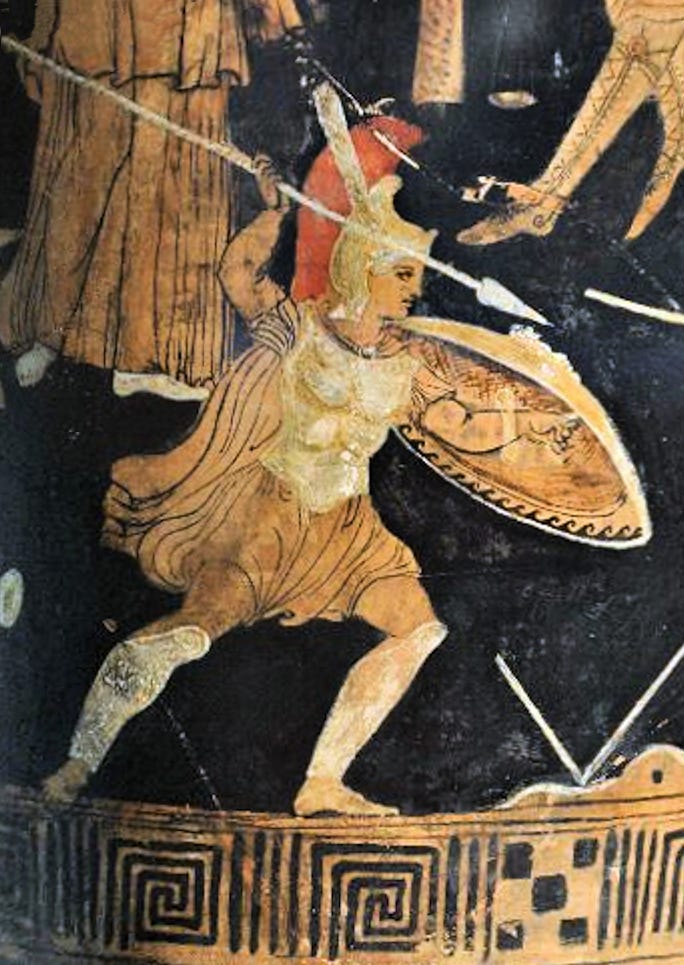The Iliad, Note 1
Great Books Notes
I’ve begun reading The Great Books of the Western World. I plan to write reaction essays to entire works as I complete them but I’m also making notes along the way. Rather than underlining or highlighting the texts, I’m marking little numbers in the margin that relate to a note card and a note in Obsidian. The note cards will end up in my analog system. The numbering will be volume, page section, note number. This one is “GB4, 4a, 1”. Here’s what it looks like in Obsidian:
Elite Revenge
"Achilles, loved of heaven, you bid me tell you about the anger of King Apollo, I will therefore do so; but consider first and swear that you will stand by me heartily in word and deed, for I know that I shall offend one who rules the Argives with might, and to whom all the Achaeans are in subjection. A plain man cannot stand against the anger of a king, who if he swallow his displeasure now, will yet nurse revenge till he has wreaked it. Consider, therefore, whether or no you will protect me."
The Iliad 73, GB4, 4a, 1
[[Revenge]] connects to [[PUNISHMENT]] and [[JUSTICE]] in the Syntopicon. In this case it seems all the first and none of the second. Raises the question of how [[Power]] is implicated in this process.
This is very resonant with the present, where the elites whom Snowden and Assange bore witness against and embarrassed continue to exact their revenge.
The double-bracketed words [[Revenge]] and [[Power]] are links to notes on sub-ideas from the “Inventory of Terms” in The Syntopicon and the capitalized links are to the “Great Ideas” that the sub-idea is associated with. I trust that the editors of the series in the 1940s did a good job of connecting these ideas, but I still think my own interpretations may end up being a bit different. For example, although both the terms link to both of the Great Ideas (PUNISHMENT and JUSTICE), Revenge does not link with Power. So, making that connection in my notes, I’ve already added something new to the Conversation.


